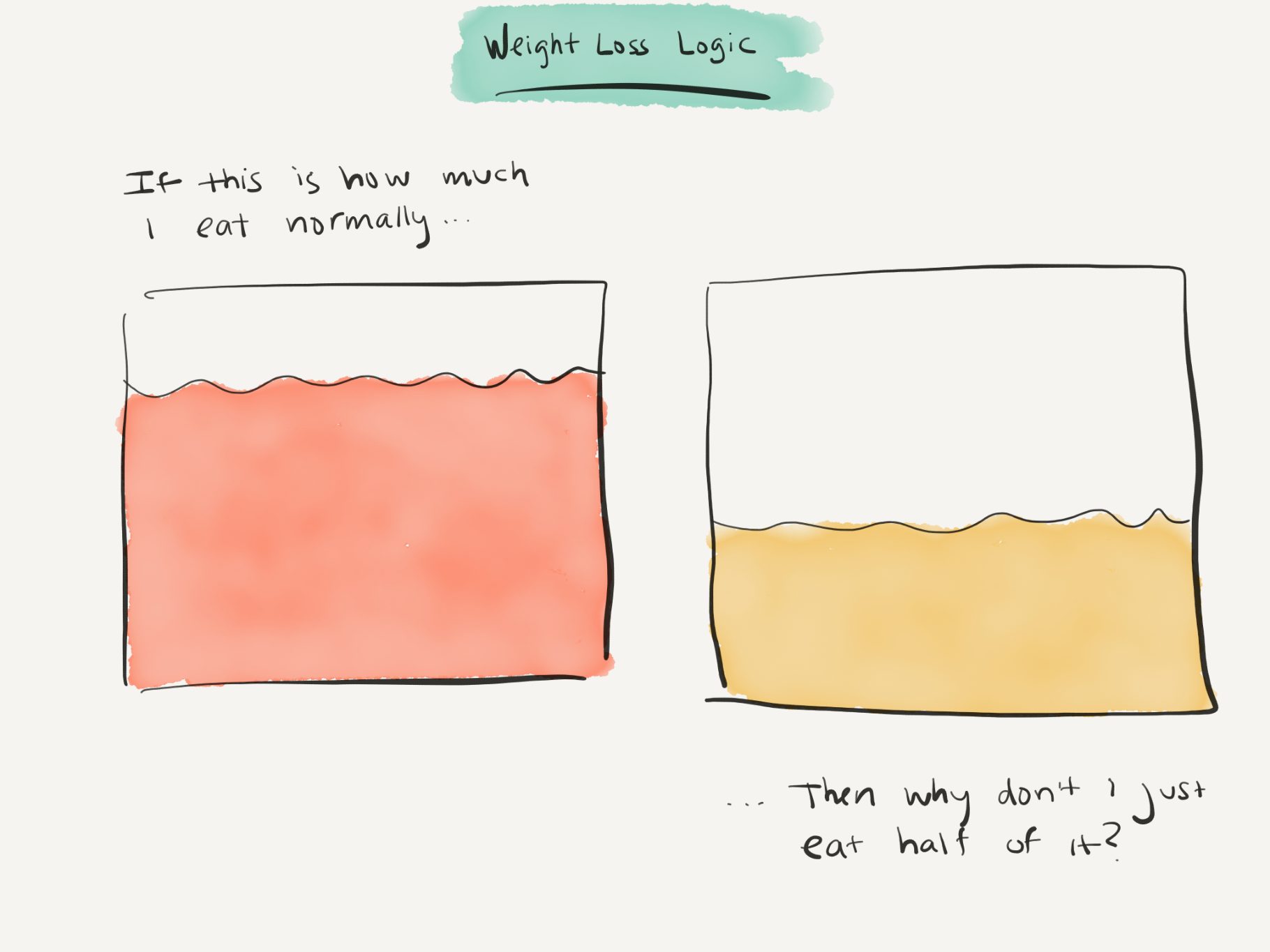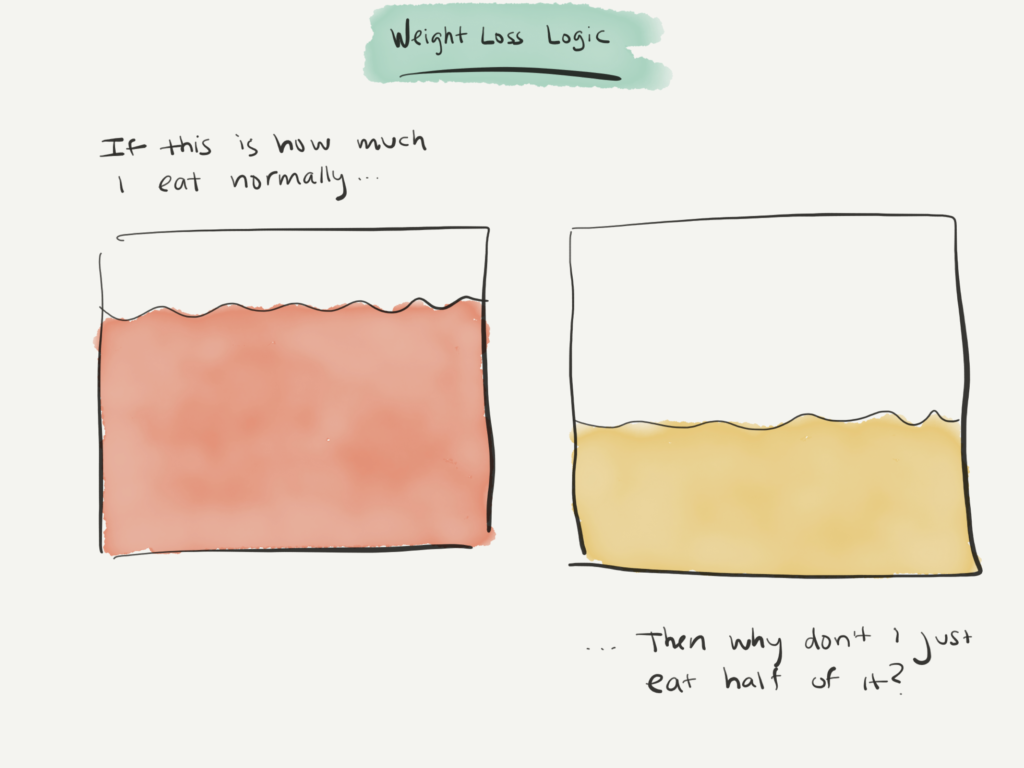
Simplifying vs. Optimizing When It Comes To Your Diet – Two Approaches That Work
There is only one principle I have guaranteed see work with all my clients, students, and thousands upon thousands of emails and Youtube comments. Among all the diets in the world, there is only one golden principle I have observed to be true.
After I read Scott Adams book, How to Fail At Almost Everything and Still Win Big, I was impressed by one passage where he talked about “Optimizers vs. Simplifiers.”
Optimizers are people who are trying to get that last 1% in. They’re trying to build the perfect, most effective approach. My personality is unfortunately an optimizer personality. I will drive to the market, on the way grab that gift and card I was looking to get last week, and then on the way home stop by the deli to grab my lunch.
From there, in the evening, I’ll have a list of 10 things lined up that I can cross off my checklist for the coming day all at once – then organize my day around knocking them out with one fel-swoop.
Simplifiers are simple. They would just rather go to the market. And just do that. They may only get 80 or 90% of the things done, but they still get the job done, and they have one upside advantage: they aren’t insane, and constantly driving them crazy with the stress.
Simplifiers And Optimizers Are Different When It Comes to Dieting and Weight Loss

Simplifiers approach weight loss and fitness in a really clear manner.
Rather than asking what macronutrients, carbs, proteins, and fats they should eat, they know to just eat real food.
Rather than trying to figure out how many hours they should be in the gym and the most perfect workout routine, they just start the habit of exercising.
Rather than trying to complicate their cooking and eating with Martha Stewart-level recipes, they just pick a protein, a vegetable, and a carb. And then they cook them.
The reality is that life is incredibly simple for the optimizer – she starts faster, she stays longer, she has less stress, and spends much less time in the “what should I really be doing?” phase.
Optimizers
Optimizers want to get 99% of the way, and have the perfect plan lined up for them. Optimizers are willing to do more work, prepare more research, come up with a more thorough plan, and endure more stress, to ensure that they have 99% of the right gameplan lined up. And then they execute.
Optimizers will take the time to figure out how much protein, fat and carbs they should be eating for their age, gender, body type and goals.
Optimizers will take the time to find a perfect gym routine for the stomach, butt, arms, and legs that they want.
Optimizers do what it takes to create Martha-level quality meals that impress their friends on Instagram, and tastes delicious.
But there is a price to pay for the Optimizer, which is stress and inaction. All this planning of the perfect plan, the perfect execution, is tiring. It’s stressful. And it’s one more thing that an optimizer has to throw on top of their already busy life optimizing their career, and finances, and health, and relationships, and crazy schedule, and more.
But here’s the truth.
Both of these can, and do, work. But which one will help you reach your goals fastest?

I’m a “Simplifier” because I know I will get overly obsessed if I put too much thought into trying to maintain my weight loss, food portion control and fitness goals. Trying my BEST seems to make me happiest! When I was obsessed with junk food, or the “right times” to eat meals, before my weight loss that was my downfall. Best wishes to all who have this struggle – you are not alone.
Very true Karen.
I’m an optimizer too. My first fat loss plan – way back in 1995 or so – involved probably four or five weeks of research, a five page “rule book” for defining and measuring compliance with the dietary and exercise plans, and a “scoresheet” tying my spending allowance to my performance (as a motivator). Worked great for two or three months, but when life happened and I couldn’t stick with it perfectly for a week, the whole thing collapsed.
The thing is, it’s actually a less stressful approach for me (until the “collapse” part, anyway). Trying to move forward without full investigation really brings up a fear of the unknown. I suspect it’s because, as a young kid growing up with Asperger’s (before anyone knew what that was), the only area of life I felt confident and “in control” was in academics and studies – especially math. Maybe I’ve felt the need to study and quantify everything because it brings up that feeling of confidence and control.
That’s one of the things I’m starting to get from your posts and videos – they’re basically making simplifying and concentrating on simple habits *feel* the same as lots of research and quantification (since they’re based on your own research), letting me start to work with that approach without all the stress I used to feel when I’d try it.
Hi, Alex,
Great post! I love that you reiterate that carrying out simple, meaningful habits is very effective and less stressful than worrying about every specific detail. Thanks, as always, for sharing!
Nicki